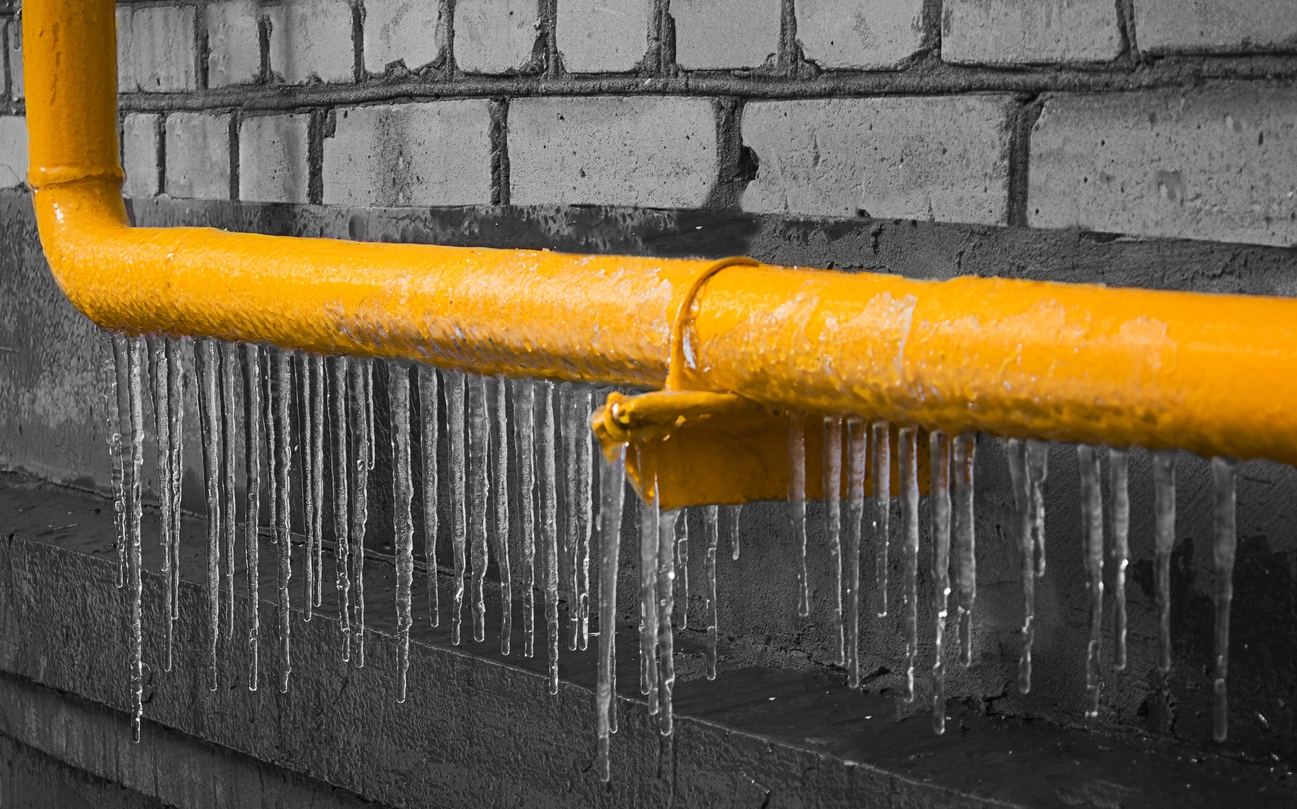Colorado is known for its cold winters with the average low temperature in Colorado Springs in December being 16 degrees Fahrenheit. Because of this, frozen pipes are a risk many homes in the area face in the winter.
It’s crucial that homeowners take proactive steps to prepare their homes for winter, like winterizing their plumbing systems to prevent frozen pipes. Below, Property Restoration highlights some steps to do just that.
How to Prepare Your Pipes for Winter
Like any part of your home, your pipes and other parts of your plumbing system require regular maintenance to keep them in good working order. This is especially important when the weather gets colder, as your pipes become at risk of freezing, which can lead to burst pipes and water damage in your home. Below are some steps you can take to prepare your pipes for the upcoming colder temperatures.
1. Shut Off Outdoor Faucets
An outdoor faucet is convenient during the warmer months as it allows you to water your plants, wash your car, and do other chores. However, it can create a major inconvenience if it freezes during the winter. Shutting it off can prevent this.
To shut off your outdoor faucet, open it and the bleeder cap on the shutoff valve to drain water from the pipes. Once the pipes are drained, shut off the faucet and valve. Draining the pipes prevents ice buildup, which can damage them and the faucet.
Pro Tip: Consider putting an insulated cover on your outdoor faucet for extra protection from the cold. It can slow heat loss from the pipe as it travels through the wall into the cold. Best of all, it can be easily installed and removed as the seasons change.
2. Disconnect Hoses
If you have a hose attached to your outdoor faucet, take the following steps to prepare it for winter:
- Remove the hose from the faucet
- Drain any water from the hose
- Store it indoors for the winter months
When left out in the cold, a hose can freeze, especially if it still has water in it. If the hose is connected to the faucet, ice can back up into the pipe, causing it to crack.
3. Install Heat Cables
Heat cables can be an effective way to prevent pipes on outdoor walls from freezing. These cables turn on and off as needed to heat the pipe using an integral thermostat that senses their temperature. However, you need an outlet to plug the cable into, so be mindful of this before investing in this solution.
4. Insulating Your Home & Pipes
Most piping is located in the basement or attic. Sealing cracks or holes using expandable foam can keep cold air out and warm air in. This can protect your pipes from the cold while lowering your energy bills.
If you have pipes in an unheated area, like a garage, cover them with insulation. This type of insulation is a foam cover that is easily installed. It can help to prevent both heat loss and potential damage from freezing.
5. Shut Off The Water While You’re Away
Whether closing down your camp for the winter or just going away for the holidays, turn the water off at the main shutoff. That way, if frozen pipes break, you’ll have less water damage to both your home and belongings.
Pro tip: While you are home, if the weather is particularly cold, you can keep the faucet running at a trickle. This acts as a relief valve for pressure that builds if the pipes freeze, which can prevent them from breaking.
6. Maintain the Temperature
For your own comfort, you usually set the thermostat to your desired temperature while at home. To keep your pipes from freezing while you’re away, you should keep your thermostat at around 65 degrees Fahrenheit when you’re not at home.
Pro tip: On particularly cold days, open your kitchen and bathroom sink cabinets to allow heat from the rest of the home to circulate in and keep the pipes warm. For extra warmth and protection, use a space heater pointed in the direction of the cabinet.
What to Do If Your Pipes Freeze
If you notice that you cannot get water from your faucet or there is visible frost on your pipes, chances are, they are frozen. In this situation, it is best to contact a professional, like those at Property Restoration, to thaw them. While you may feel comfortable attempting to thaw your own pipes, not doing so correctly can lead to further damage to your plumbing system or other parts of your home.
Property Restoration’s highly trained professionals are well-equipped to locate the freeze and safely thaw the pipes. We can also help you find a permanent solution to prevent frozen pipes in the future. While at your property, we will inspect the rest of your plumbing system to ensure no other areas are at risk of freezing. If water damage has occurred from a broken pipe, we can repair that as well!
Winterize Your Pipes With Property Restoration
Preparing your pipes for winter involves a lot of work. If you’re unsure where to start, contact Property Restoration in Peyton, CO. We understand the challenges Colorado’s climate presents, so we can advise you on preparing your home to face these cold weather challenges. When winter weather damage does strike, we’re the company Peyton trusts for comprehensive restoration!
Prepare Your Pipes for Winter With Property Restoration Solutions
If you need help preparing your pipes for winter, don’t worry. Hiring a professional like the team at Property Restoration in Peyton, CO, will safeguard your home and your wallet from winter weather damage. We can provide expert advice and effectively winterize your pipes. Contact us today to get started.


